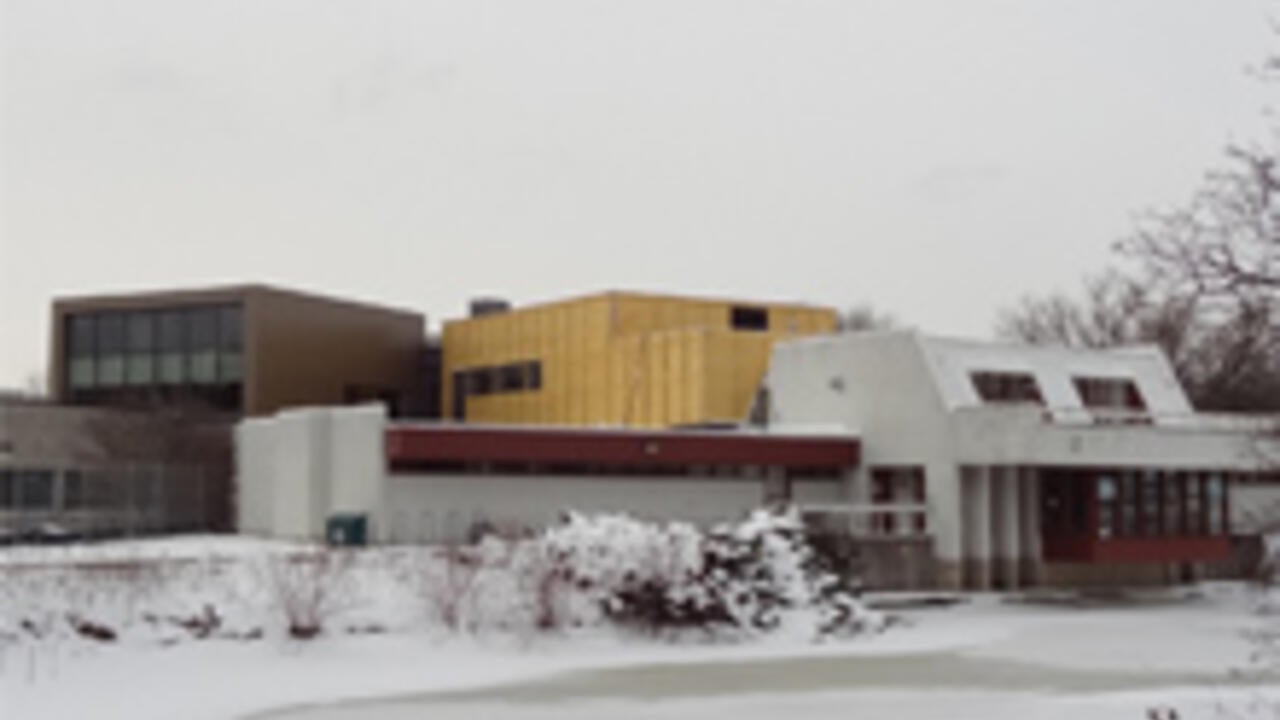
New building for Health Services, same central location
Natural light, privacy and space will improve service for students.

Natural light, privacy and space will improve service for students.
By Christian Aagaard Communications and Public AffairsHard hat clamped on her head, feet tucked into safety boots, Barbara Schumacher leads a visitor around the University of Waterloo’s new Health Services building like a proud ship’s captain showing off a new command.
 “It will be such a pleasant place to work,’’ says Dr. Schumacher, director of health services, as she navigates around stacks of panels and buckets of drywall compound. “The architects really listened to us. We knew what had to be different.’’
“It will be such a pleasant place to work,’’ says Dr. Schumacher, director of health services, as she navigates around stacks of panels and buckets of drywall compound. “The architects really listened to us. We knew what had to be different.’’
She doesn’t have to go far to make comparisons as work on the $10-million building winds down to a Feb. 11 opening. The old Health Services centre lies on other side of a wall.
Built in 1968, when the university’s population was about a fifth of its current size, the old centre is a network of cinderblock halls connecting cinderblock rooms. These have been reshaped by changing needs over the years. Windows are scarce. The autoclave for sterilizing medical instruments sits in a former washroom.
“We’re seeing 250 to 300 people a day,” Dr. Schumacher says. “It was built for three to four doctors. We’ve got seven or eight in that space today.”
Still, the old centre has one thing going for it: A prime location across the Ring Road from the Student Life Centre, with St. Jerome's University, Renison University College and Student Village 1 nearby.
Students backed the project in a referendum and construction began late November 2011. Designed by Kearns Mancini Architects Inc. with John MacDonald Architect Inc., The building features:
 The old building will be renovated into a wing that will house a family-health clinic. Growth in graduate and post-doctoral programs, plus Waterloo’s wide welcome to international students and visiting faculty, means that families form a significant part of the university community.
The old building will be renovated into a wing that will house a family-health clinic. Growth in graduate and post-doctoral programs, plus Waterloo’s wide welcome to international students and visiting faculty, means that families form a significant part of the university community.
That, says Dr. Schumacher, demonstrates how much the place has changed.

Read more
Waterloo chancellor Dominic Barton explores how we can create a more prosperous future in a new podcast

Read more
The faculties of Science and Arts introduce a new theatre and performance course tailored to Science students

Read more
Waterloo’s WatSPEED to provide businesses with access to AI upskilling programs in new province-wide initiative
The University of Waterloo acknowledges that much of our work takes place on the traditional territory of the Neutral, Anishinaabeg and Haudenosaunee peoples. Our main campus is situated on the Haldimand Tract, the land granted to the Six Nations that includes six miles on each side of the Grand River. Our active work toward reconciliation takes place across our campuses through research, learning, teaching, and community building, and is co-ordinated within the Office of Indigenous Relations.